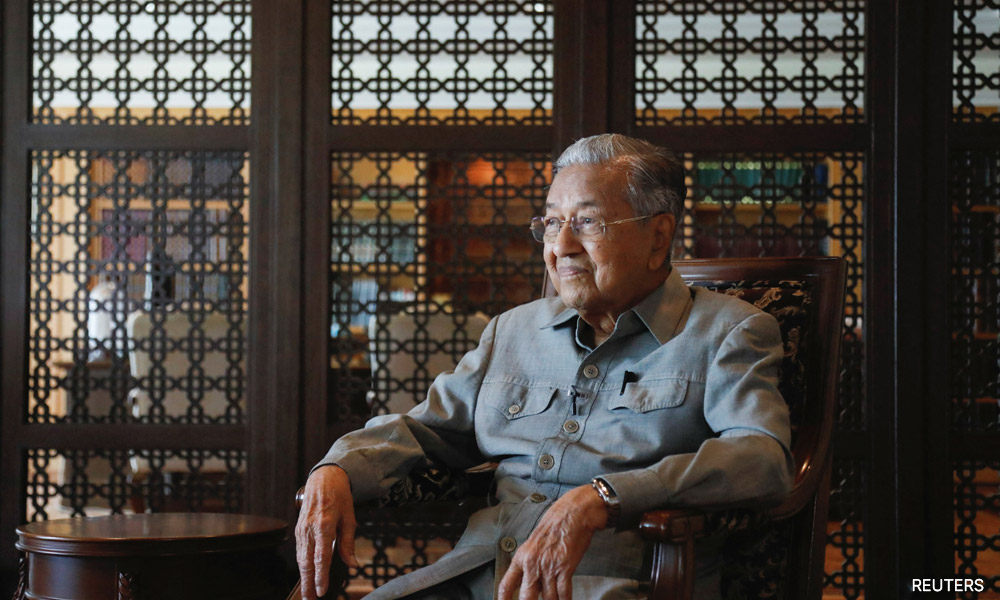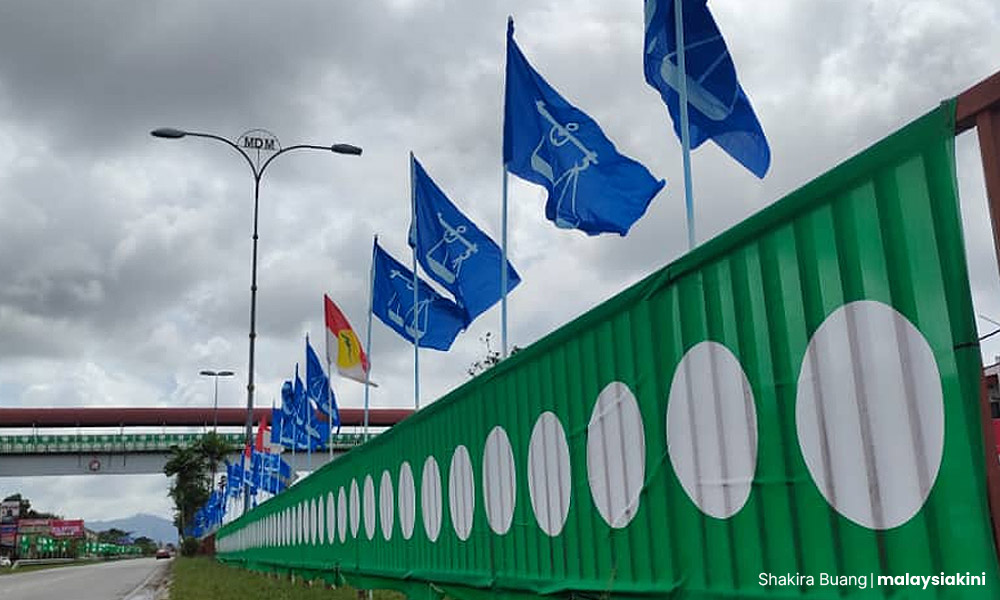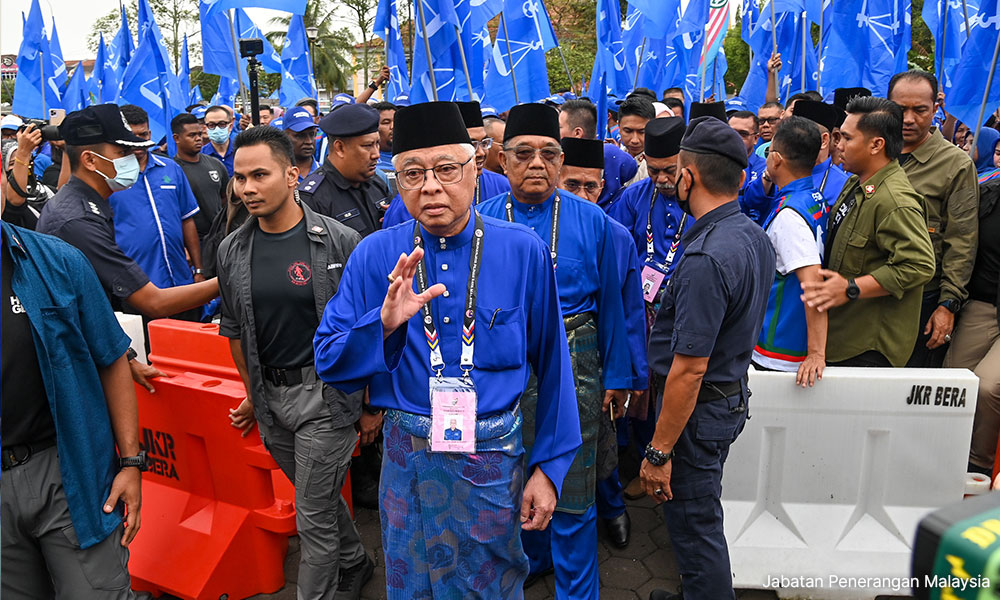Many Malaysians fear the upcoming hung Parliament because, since 1959, we have had 14 single coalition simple majority governments. It is simply the fear of the unknown.
However, if the rules of the game are sorted out, hung Parliament may offer what Malaysia need – the way out from ethnoreligious politics and patronage politics.
How so? Once political elites come to accept hung Parliament as a given, and post-election coalition governments become the new norm, serious political parties may be forced to master and balance two calculations in their game: product differentiation and programmatic compatibility.
Product Differentiation
Parties always need product differentiation to attract votes. If they are too similar, voters would not see the need to come out and vote for one party over another.
In a functioning democracy, this causes parties to develop different programmes and policies for voters to choose from, and the collective choice of the electorate results in a different disposition of government and a different composition in Parliament.
But in Malaysia, product differentiation often takes three unproductive forms, partly because of the dominance enjoyed by the government coalition.
The first is one between the government and the opposition. The government parties would abuse and monopolise state resources to starve the opposition so that they alone can serve the voters well, and even entice opposition lawmakers to cross over.
Consequently, the next product differentiation is competing for discourses of moral monopoly to justify the maximisation of incumbent advantages, by denying the legitimacy and utility of the other side’s existence.
For the most part of the time before 2018, the government parties accused the opposition of being anti-national, anti-development and even foreign agents, and in return, the opposition attacked the government as corrupt, doing too much/too little for one community and opposite for others.
In 1978, the BN federal government controlled all state governments after unseating its former partner PAS in Kelantan.

This posed an existential challenge to PAS: being deprived of state-level patronage and resource, while its presence as a Malay-based opposition was an obstacle to the cause of Malay unity, much craved after May 13, why should it continue to exist?
In April 1981, three months before Dr Mahathir Mohamad’s ascendance as prime minister, a young Turk clergy in PAS offered a powerful answer that would define Malaysian politics: “We oppose BN because it preserves the colonialist constitution, the infidel laws and the pre-Islamic (jahiliah) rules.”
Effectively a manifesto of radical decolonisation to restore Malaysia back to the imagined pre-colonial Syariah-based society, the Amanat (Abdul) Hadi (Awang) presented a powerful answer to Malay unity. It allowed PAS to survive in the political wilderness until Umno split in the mid-1980s to produce Tengku Razaleigh Hamzah’s splinter party S46 in the 1990 election.
The third product differentiation is simply one of a personality cult. When parties do not have to develop detailed proggrammes and policies – not necessary if you are government and can win
Without good policies, not pragmatic if you are opposition and cannot win with the best policies – our imagination is naturally then drawn to personalities, chasing from one charismatic saviour to another.
In short, we do not see parties competing rigorously on the policy front beyond communal and moralist grandstanding, due to excessive incumbent advantages, polarising positioning and personality cult.
But this is also very much a chicken and egg question – if somehow policy competition can become important, then the trio will recede in importance.
Programmatic compatibility
Programmatic compatibility is simply the managing of product differentiation so that parties can work together in government or in Parliament.
In Germany, mainstream parties – the Christian Democratic Union-Christian Social Union (CDU-CSU), the Social Democratic Party (SPD), the Free Democratic Party (FDP) and the Green Party – see each other as potential coalition partners.
Their product differentiation in policy must be sufficient to excite voters but would not become incompatible with each other.
Meanwhile, radical parties like the current far-right Alternative for Germany party (AfD) - and to some from the right, also the hard-left Left Party – have incompatible policy differences so much so that all or most others would exclude them.

In Malaysia, while minor parties co-opted into BN simply aligned themselves with the coalition’s position, the opposition parties – PAS, DAP and the Umno splinters, S46, PKR and Bersatu – did have to work on programmatic compatibility upon forming a united front to take on the BN.
To be credible as a government alternative, the parties did mellow themselves – for example, PAS moved its position from “Islamic State” to “PAS for all” while DAP shifted from “Malaysian Malaysia” to “Malaysian First”.
A manifesto is an important tool in forging programmatic compatibility because aspiring government partners need to consider competing and sometimes contradictory policy priorities.
But when a manifesto is seen cynically as just a nice copywriting work to impress the media and the critics, and not a real guide in government or legislative programmes, then the necessary bargaining and horse-trading do not happen.
This was the main reason why the elaborate “not-a-bible” Buku Harapan became partially unworkable when Pakatan Harapan came into power. Some of the coalition’s top leaders were simply too much into expediency and too little into policy. They promised things that they did not actually think through.
Best and worst scenarios of hung Parliament
In the best scenario of a hung Parliament, parties would have to develop productive product differentiation by moving away from excessive incumbent advantage, communal or moralist grandstanding and personality cult.
They would want to deepen parliamentary reform so that their lawmakers can perform beyond pointing at potholes on the road, giving handouts or attending kenduri. They would support equal constituency allocation for a level playing field in the competition of constituency service.
We have witnessed these happening under the MOU for political transformation and stability signed by the Ismail Sabri Yaakob government and Harapan.

Next, in government formation, the parties should use manifestos to guide their negotiation, to draw up what the new coalition government will do and will not do, besides the usual competition for ministerial jobs.
They will have to manage their differences so that their government will not collapse over policy clashes and their party can still compete against each other in GE16 based on their unique programmatic appeals.
How is this different from permanent coalition governments like BN and Harapan? In permanent coalitions, the policy differences are in theory settled and all components have to defend the compromised position, hence risking the alienation of their base.
The best gain for Malaysia is that we may finally develop salient enough differences beyond ethnicity, religion, language and region.
When parties and politicians have some real policy differences to talk about, they can rally their ground without attacking others on ethnoreligious, linguistic, cultural or regional matters. Also, unnecessarily attacking others will also make them unwelcome as future coalition partners.
This may also allow parties like Umno, Bersatu and PAS to maintain their communal bases without all the time engaging in out-Malay, out-Islam competition.
With post-coalition governments, changes will happen more slower with more players to be won over in negotiation, but when changes happen, they are less likely to be reversed.
What is the worst scenario? Well, we have had a taste of that in the 17 months under Muhyiddin Yassin– dysfunctional government, endless machination, and perhaps also rapid changes of government.
Our choice is not between a hung Parliament and a majority government. Our choice now is how to force the parties to agree to some rules that make politics work for most if not all Malaysians. - Mkini
WONG CHIN HUAT is an Essex-trained political scientist at Sunway University working on political institutions and group conflicts. Mindful of humans’ self-interest motivation while pursuing a better world, he is a principled opportunist.
The views expressed here are those of the author/contributor and do not necessarily represent the views of MMKtT.




No comments:
Post a Comment
Note: Only a member of this blog may post a comment.